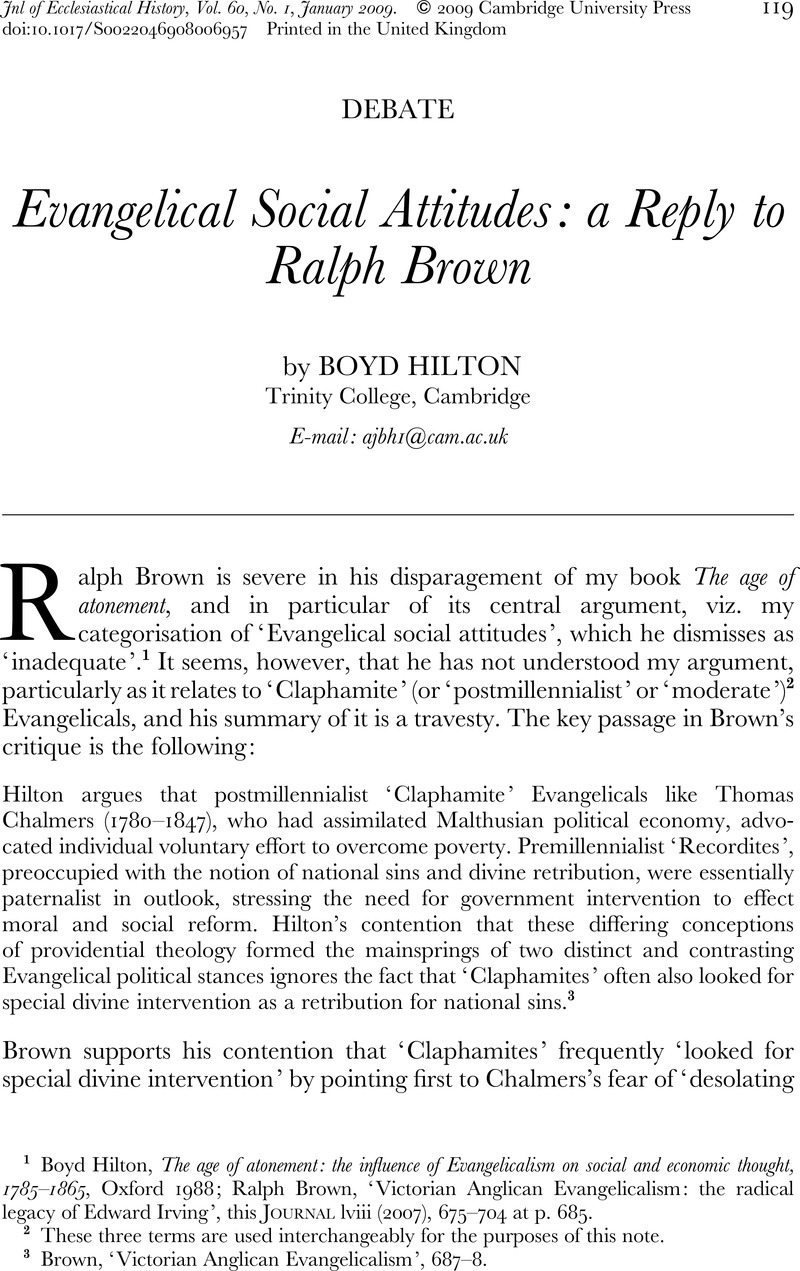Article contents
Evangelical Social Attitudes: a Reply to Ralph Brown
Published online by Cambridge University Press: 08 January 2009
Abstract

- Type
- Debate
- Information
- Copyright
- Copyright © 2009 Cambridge University Press
References
1 Boyd Hilton, The age of atonement: the influence of Evangelicalism on social and economic thought, 1785–1865, Oxford 1988; Ralph Brown, ‘Victorian Anglican Evangelicalism: the radical legacy of Edward Irving’, this Journal lviii (2007), 675–704 at p. 685.
2 These three terms are used interchangeably for the purposes of this note.
3 Brown, ‘Victorian Anglican Evangelicalism’, 687–8.
4 Christian Observer (Dec. 1831), 774; Brown, ‘Victorian Anglican Evangelicalism’, 686. Here Brown confuses the British slave trade (which was outlawed in 1807) with British colonial slavery (which continued to be legal until 1833).
5 Hilton, Age of atonement, 13–14 (italics added).
6 Indeed, it was one of the pieces of evidence that led me to formulate my theory in the first place.
7 One point I concede to Ralph Brown is that, like some other historians in the 1980s, I carelessly used the term ‘Recordite’ as a synonym for premillenarian Evangelicals. It is on reflection a meaningless term, since one cannot know whether it refers to the editors, or the writers, or the readers of the Record, and in fact no single set of attitudes applies. I have also acknowledged that my use of the adjectives ‘extreme’ and ‘moderate’ to describe the different types of Evangelicals in Age of atonement is misleading, since it implies that they were merely at different points on a spectrum, whereas in fact they were fundamentally opposed in all aspects of their philosophies.
8 The distinction is discussed at greater length in Boyd Hilton, A mad, bad, and dangerous people? England, 1783–1846, Oxford 2006, 406–8.
9 I should add here however that free trade per se was much less central to my analysis than policies relating to money and banking, the poor law and company law.
10 Hilton, Age of atonement, 43–5.
11 Brown, ‘Victorian Anglican Evangelicalism’, 702–3.
12 This is central to my claim (see n. 7 above) that premillenarian or adventist Evangelicalism was diametrically opposed to the postmillennial or moderate Evangelicalism of the Clapham Sect.
13 Hilton, Age of atonement, 293, 296.
14 Ibid. 290.
- 1
- Cited by




